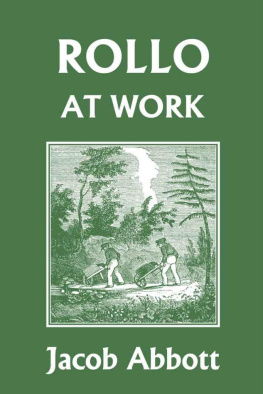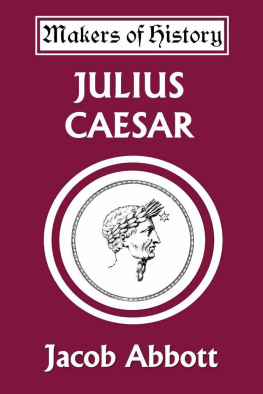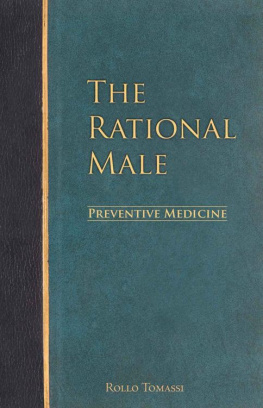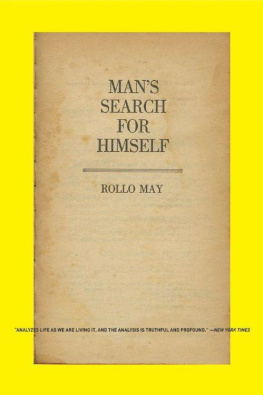Rollo at Play
by
Jacob Abbott
Yesterday's Classics
Chapel Hill, North Carolina
Cover and Arrangement 2010 Yesterday's Classics, LLC
All rights reserved. No part of this book may be reproduced or retransmitted in any form or by any means without the written permission of the publisher.
This edition, first published in 2010 by Yesterday's Classics, an imprint of Yesterday's Classics, LLC, is an unabridged republication of the work originally published by Hogan & Thompson in 1850. This title is available in a print edition (ISBN 978-1-59915-343-8).
Yesterday's Classics, LLC
PO Box 3418
Chapel Hill, NC 27515
Yesterday's Classics
Yesterday's Classics republishes classic books for children from the golden age of children's literature, the era from 1880 to 1920. Many of our titles are offered in high-quality paperback editions, with text cast in modern easy-to-read type for today's readers. The illustrations from the original volumes are included except in those few cases where the quality of the original images is too low to make their reproduction feasible. Unless specified otherwise, color illustrations in the original volumes are rendered in black and white in our print editions.
Notice to Parents.
Although this little work, and its fellow, "Rollo At Work," are intended principally as a means of entertainment for their little readers, it is hoped by the writer that they may aid in accomplishing some of the following useful purposes:
1. In cultivating the thinking powers; as frequent occasions occur, in which the incidents of the narrative, and the conversations arising from them, are intended to awaken and engage the reasoning and reflective faculties of the little readers.
2. In promoting the progress of children in reading and in knowledge of language; for the diction of the stories is intended to be often in advance of the natural language of the reader, and yet so used as to be explained by the connection.
3. In cultivating the amiable and gentle qualities of the heart . The scenes are laid in quiet and virtuous life, and the character and conduct described are generallywith the exception of some of the ordinary exhibitions of childish follycharacter and conduct to be imitated; for it is generally better, in dealing with children, to allure them to what is right by agreeable pictures of it, than to attempt to drive them to it by repulsive delineations of what is wrong.
Contents
Rollo at Play in the Woods
The Setting Out
O NE pleasant morning in the autumn, when Rollo was about five years old, he was sitting on the platform, behind his father's house, playing. He had a hammer and nails, and some small pieces of board. He was trying to make a box. He hammered and hammered, and presently he dropped his work down and said, fretfully,
"O dear me!"
"What is the matter, Rollo?" said Jonas,for it happened that Jonas was going by just then, with a wheelbarrow.
"I wish these little boards would not split so. I cannot make my box."
"You drive the nails wrong; you put the wedge sides with the grain."
"The wedge sides!" said Rollo; "what are the wedge sides,and the grain? I do not know what you mean."
But Jonas went on, trundling his wheelbarrow; though he looked round and told Rollo that he could not stop to explain it to him then.
Rollo was discouraged about his box. He thought he would look and see what Jonas was going to do. Jonas trundled the wheelbarrow along, until he came opposite the barn-door, and there he put it down. He went into the barn, and presently came out with an axe. Then he took the sides of the wheelbarrow off, and placed them up against the barn. Then he laid the axe down across the wheelbarrow, and went into the barn again. Pretty soon he brought out an iron crowbar, and laid that down also in the wheelbarrow, with the axe.
Then Rollo called out,
"Jonas, Jonas, where are you going?"
"I am going down into the woods beyond the brook."
"What are you going to do?"
"I am going to clear up some ground."
"May I go with you?"
"I should like itbut that is not for me to say."
Rollo knew by this that he must ask his mother. He went in and asked her, and she, in return, asked him if he had read his lesson that morning. He said he had not; he had forgotten it.
"Then," said his mother, "you must first go and read a quarter of an hour."
Rollo was sadly disappointed, and also a little displeased. He turned away, hung down his head, and began to cry. It is not strange that he was disappointed, but it was very wrong for him to feel displeased, and begin to cry.
"Come here, my son," said his mother.
Rollo came to his mother, and she said to him kindly,
"You have done wrong now twice this morning; you have neglected your duty of reading, and now you are out of humor with me because I require you to attend to it. Now it is my duty not to yield to such feelings as you have now, but to punish them. So I must say that, instead of a quarter of an hour, you must wait half an hour, before you go out with Jonas."
Rollo stood silent a minute,he perceived that he had done wrong, and was sorry. He did not know how he could find Jonas in the woods, but he did not say any thing about that then. He only asked his mother what he must do for the half hour. She said he must read a quarter of an hour, and the rest of the time he might do as he pleased.
So Rollo took his book, and went out and sat down upon the platform, and began to read aloud. When he had finished one page, which usually took a quarter of an hour, he went in to ask his mother what time it was. She looked at the clock, and told him he had been reading seventeen minutes.
"Is seventeen minutes more than a quarter of an hour, or not so much?" asked Rollo.
"It is more; fifteen minutes is a quarter of an hour. Now you may do what you please till the other quarter has elapsed."
Rollo thought he would go and read more. It is true he was tired; but he was sorry he had done wrong, and he thought that if he read more than he was obliged to, his mother would see that he was penitent, and that he acquiesced in his punishment.
So he went on reading, and the rest of the half hour passed away very quickly. In fact, his mother came out before he got up from his reading, to tell him it was time for him to go. She said she was very glad he had submitted pleasantly to his punishment, and she gave him something wrapped up in a paper.
"Keep this till you get a little tired of play, down there, and then sit down on a log and open it."
Rollo wondered what it was. He took it gladly, and began to go. But in a minute he turned round and said,
"But how shall I find Jonas?"
"What is he doing?" said his mother.
"He said he was going to clear up some land."
"Then you will hear his axe. Go down to the edge of the woods and listen, and when you hear him, call him. But you must not go into the woods unless you hear him."
Bridge Building
R OLLO went on, down the green lane, till he came to the turn-stile, and then went through into the field. He then followed a winding path until he came to the edge of the trees, and there stopped to listen.
He heard the brook gurgling along over the stones, and that was all at first; but presently he began to hear the strokes of an axe. He called out as loud as he could,
"Jonas! Jonas!"
But Jonas did not hear.
Then he walked along the edge of the woods till he came nearer the place where he heard the axe. He found here a little opening among the trees and bushes, so that he could look in. He saw the brook, and over beyond it, on the opposite bank, was Jonas, cutting down a small tree.















